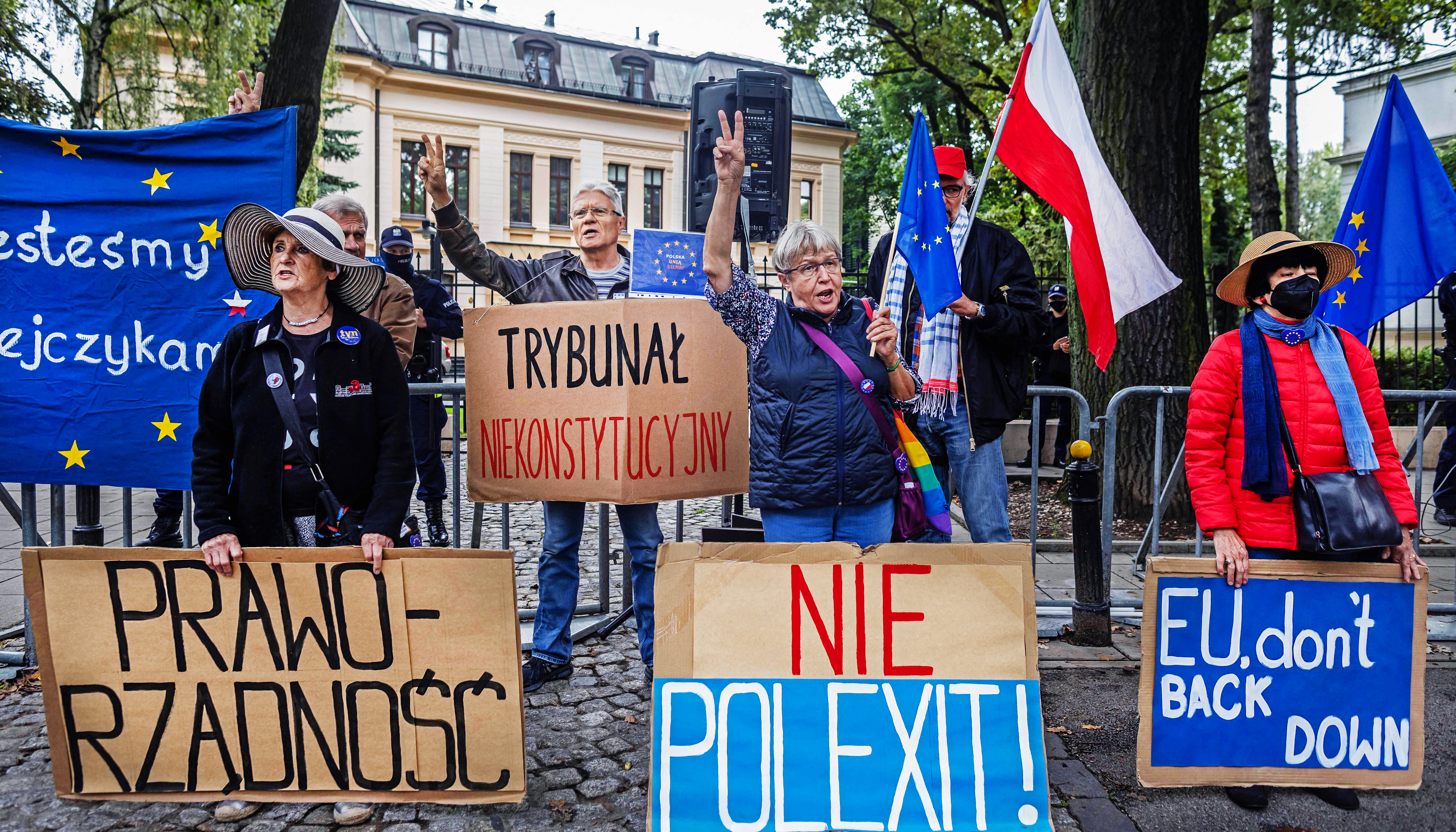After delaying its decision several times, the Polish Constitutional Court has finally ruled that European treaties do not override Polish constitutional law, thus paving the way for even more serious clashes between Warsaw and Brussels. Now, talk of ‘Polexit‘ is becoming more and more common.
Since 2015, Poland has been at odds with the EU. After refusing to take in tens of thousands of Middle Eastern immigrants invited into the EU by chancellor Merkel, tough anti-abortion laws and the controversial “Family charter” have been other major points of dissent.
Yet the most problematic field of conflict is the so-called Polish Judicial Reform. During the final few weeks of Donald Tusk’s time as Prime Minister of Poland, his liberal government nominated, well ahead of time, the successors of constitutional judges who were going into retirement during the next legislative term. But a series of scandals brought down Tusk, and the new conservative government ended up claiming the right to nominate the successors of the soon retiring judges itself. This led to a momentary doubling of certain judicial functions, fierce internal political disagreements between judges and judicial institutions, and the strong condemnation of Poland by the EU and Berlin.
From a purely procedural point of view, the Judicial Reform tried to limit the political involvement of judges and increased the Polish Parliament’s right to have a say in the personal composition of the high Judiciary, as is also the case in numerous other Western countries, above all in Germany.
But the quarrel is not just about procedural politics; it is also and perhaps essentially about values: when joining the European Union, Polish conservatives expected the project to be grounded in a common respect for fundamental social institutions such as the classical family, personal propriety, national identity or Western civilisation.
Yet the European elites have increasingly turned towards the values of radical liberalism. Using the dynamic “openness” of the European legal system, known as the “Méthode Monnet”, the European Court of Justice has codified vague key words such as “diversity”, “tolerance”, “respect for minorities”, “justice” or “equity” in order to indirectly impose a new legal framework devoid of any democratic backing by member states. Such measures mask the ideological conflicts between the liberalism of Brussels, Berlin and Paris and the conservatism of Warsaw and Budapest as a legal battle between a pretended “rule of law” and an alleged “national populism”.
Had the Polish Constitutional Court accepted the superiority of European over Polish constitutional law, it would have meant the total surrender of everything built up by the present Polish government; it also would have laid the groundwork for a new Tusk-government, leading to a never-ending series of politically motivated trials against all high representatives of the present majority.
Will this decision be a further step towards the Polexit? It is hardly a present possibility — most Poles, the government included, are keen to share a peaceful and ever closer common future with their neighbours. But things have come to the point where some groups are increasingly starting to see the EU as the worst enemy of European patriotism.










Join the discussion
Join like minded readers that support our journalism by becoming a paid subscriber
To join the discussion in the comments, become a paid subscriber.
Join like minded readers that support our journalism, read unlimited articles and enjoy other subscriber-only benefits.
Subscribe